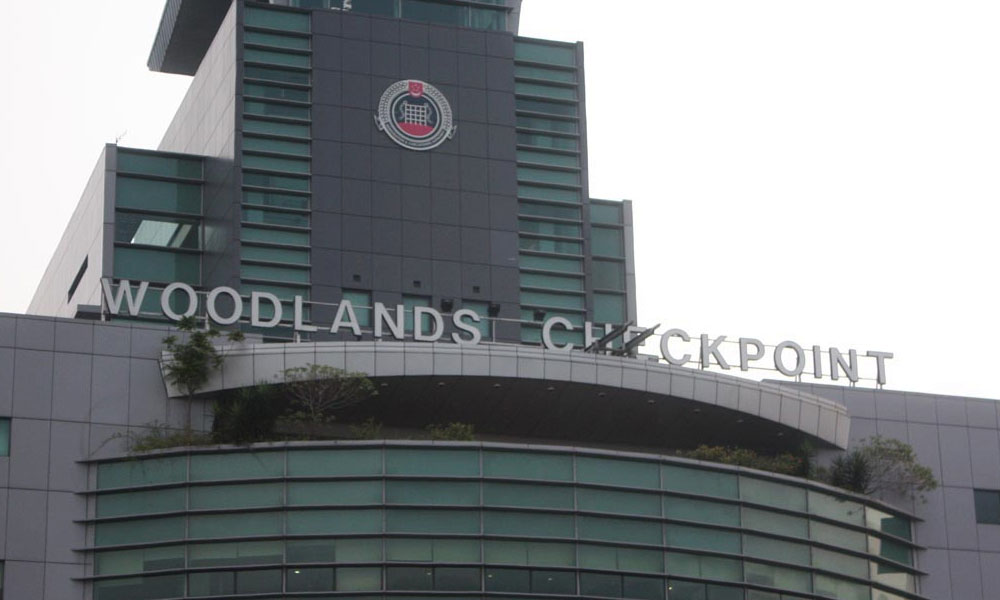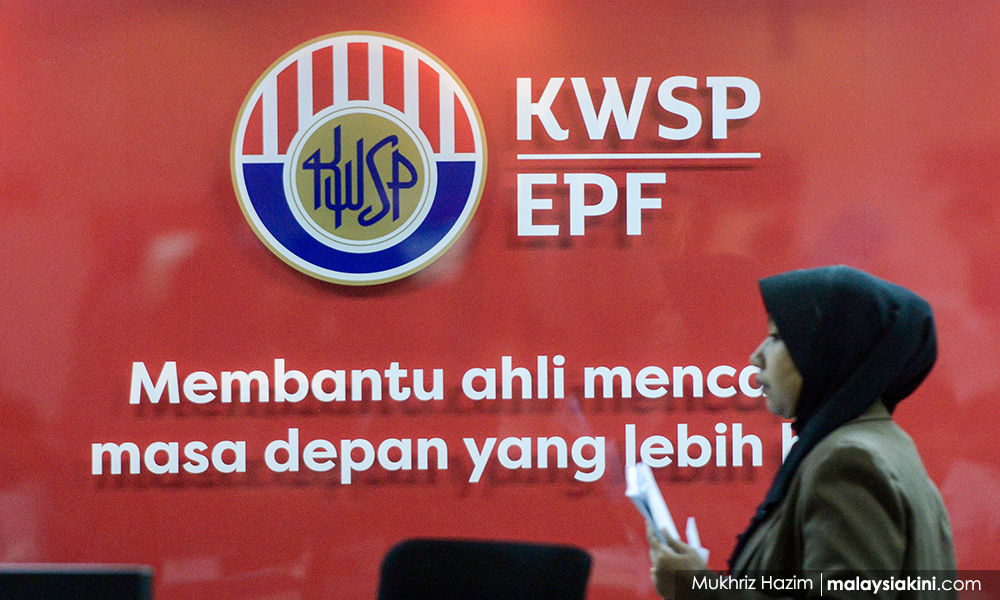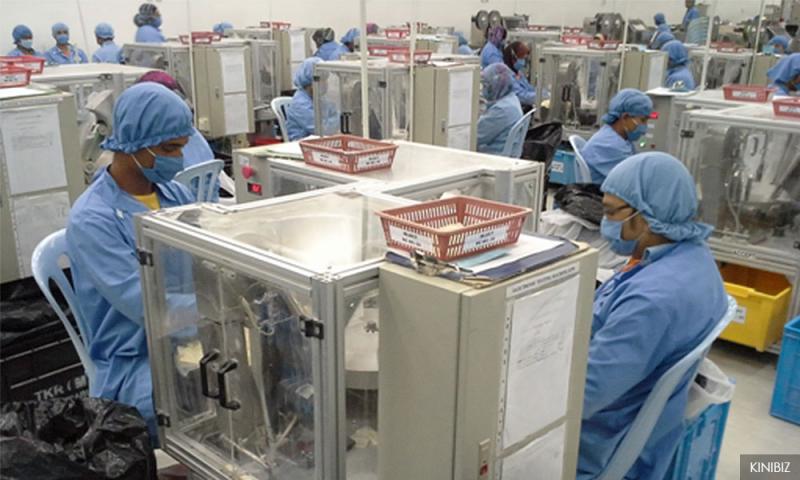Higher pay, higher productivity and higher level of technology
COMMENT | To deal with economic insecurity, the Malaysian state needs to confront some old assumptions and intervene with the aim to create a virtuous cycle of higher pay, higher technological adoption and higher productivity.
A sustainable increase in wages has to be achieved through a sustainable increase in productivity. However, the economy is currently overly reliant on cheap foreign labour, the availability of which reduces incentives to invest in labour-saving technologies. Overall, this means that our labour productivity remains depressed.
The government needs to incentivise investment in automation in all sectors, in a staggered manner.
The increase in productivity for businesses will also enable higher wages to flow to fewer, but higher-skilled workers. This will lead to a virtuous circle, where the availability of skilled labour attracts more complex (and thus, higher-margin) manufacturing and services, generating more demand and more supply for skilled workers, et cetera. For individual households, higher wages will decrease economic insecurity.
During the Cold War, capitalist societies were most concerned and most prepared to intervene to ensure that ordinary citizens were getting a good deal from the economy to prevent them from being attracted to communism.

In the 1960s and 1970s, South Koreans called their universities “cow bone” towers – a twist to “ivory tower”. Their parents sold one cow per semester to finance their children’s education. The thing was, the peasants had accumulated wealth in the form of cows, thanks to post-war agrarian reforms, a measure advised by the Americans to battle communism.
Agrarian reform in Taiwan had the same origins and the same logic. Whoever you leave behind in your economic development becomes the person who will seek your downfall.
To a certain extent, preoccupation with the imperative of providing jobs and preventing youth unemployment in Malaysia and Singapore in the 1960s and 1970s was driven by the same source of concern. The first wave of foreign direct investments in Malaysia had a very clear policy objective - to provide better-paying jobs for Malaysians than what the domestic sector could provide.
That objective has now been blurred. Often FDIs are attracted in service of some form of a numbers game. In some instances, Malaysia offers tax holidays and incentives for foreign corporations to operate and employ mostly unskilled foreign labour. It adds nicely to the GDP figures, but it does not bring many benefits to the average Malaysians.
Herein lies the challenge for Malaysian policymakers. Should we compete with Vietnam, the rising star in Southeast Asia? Or should we see Vietnam - as well as Bangladesh - as economies complementing our own?
The Malaysian state can assist Malaysian industries to invest in Bangladesh or Vietnam if the industries are labour intensive. If we compete with Bangladesh and Vietnam to be labour intensive, at some point they will catch up and leapfrog us, just like China in the last 20 years, and we will forever be in the middle-income trap.
Instead, what we should be doing is to compete with Singapore.
When I was assisting the Penang government, nearly a decade ago, I was surprised that Penang had to compete, toe and nail, with Singapore for investments. I thought Singapore would be in the realm of industries very much ahead of Malaysia.
The strange thing is, Singapore was able to compete with Malaysia at the relatively low end because they import cheap labour from Malaysia. Singapore can have its cake (having very admirably high-tech sectors) and eat it (continue to compete at the low-end) thanks to the imported labour from Malaysia.

Currently, around 500,000 Malaysians work as cheap labour in Singapore for a wage of less than S$2,000 per month, while we hire millions of cheap labourers from Bangladesh, Nepal and Indonesia.
Why are Malaysians not staying in Malaysia to do the dirty jobs? Obviously, the jobs themselves do not deter them. After all, they are prepared to work in 3D (dangerous, difficult and demeaning) jobs in Singapore, Australia or South Korea.
It all boils down to the pay rate as they are paid better in those countries. They are simply not interested in jobs that pay RM1,200 per month. For those who are earning S$2,000 and below, RM4,000 (two-thirds of Singapore’s pay) would be sufficient to entice many to return.
The government will have to handhold the industry to reduce the number of unskilled foreign labourers in the country, for example, through automation. One could turn a task that requires 10 unskilled foreign workers into one skilled position for Malaysians at double or triple the original salary. The companies will still make huge productivity gains even after the initial technology investment.
The government will need to set a five to a 10-year time frame in consultation with industries to sequence the reduction of foreign labour through a combination of carrots and sticks. The sequence should start with the services sector, followed by construction and manufacturing, only reaching the plantation and agriculture sectors at the end. Admittedly, it is far more difficult to automate in agriculture than in manufacturing.
Industrial policy
Fundamentally, what is the role of the state in an economy? I would like to propose that it is firstly to ensure the economic security of its citizens so that there is a secured environment in every sense for everyone to thrive, including businesses.
The state can help build a strong Malaysian industry base through a robust and disciplined industrial policy that helps local industries more than foreign industries, provided if the Malaysian ones are generating the same level of decently paid jobs or providing the services needed by society.
Further, the state has a moral obligation and political imperative to ensure that Malaysians enjoy economic security through decent jobs with decent pay. The role of the government is not to find foreign workers to fill foreign-owned factories but to play a balancing role to ensure that growth is equitably distributed between Malaysian capital owners and Malaysian workers.

The state needs to help Malaysian businesses and capital owners because they pay taxes, generate employment for Malaysians and hopefully, build up Malaysia's industrial capacity.
The state should not need to go out of its way to assist foreign capital owners unless they generate jobs or provide needed services that Malaysian businesses and capital owners could not, even with the support of industrial policies. At the least, government policies must favour Malaysian industries over foreign industries.
Furthermore, the Malaysian state has a crucial role to ensure Malaysians do not have to work as cheap labour in Singapore or as illegal workers in Australia or South Korea.
On a side note, the debate on minimum wage is sometimes not very helpful. Organisations representing businesses protest militantly on each hike of minimum wage when the minimum wage is just setting the base.
I do hope there will be a new generation of businesses that understand the need for economic security for Malaysians and also the benefits of a nation competing with the world at a higher level of technological competence. I hope these businesses will start wearing, on their sleeve badges, messages such as “we pay a living wage” to change the wage debate altogether.
The death of the 'flying geese' model
One of the reasons why the Malaysian state needs to ensure that Malaysian workers are well paid is that the flying geese model, in which Asian economies see the US market as the final destination of export, is on its deathbed, if not already dead. Paring down wages in the hopes of becoming the next cheap manufacturing destination will not work anymore.
The combined effect of China's huge industrial capacity, especially since the nation joined the World Trade Organisation in 2001 and the loss of the US middle class, ironically because middle-class manufacturing jobs were outsourced to China, means that countries like Malaysia can no longer depend on pressing down domestic wages in the hope of exporting cheaply.
The model that made Malaysia rich in the 1990s is no longer working.
Instead, over the past decade since the Global Financial Crisis in 2008, the Malaysian economy has been on life support through domestic consumption. And it is a domestic consumption that has been fuelled by household debts. Clearly, this is not sustainable as household debts to GDP have increased from about 60 percent a decade ago to around 85 percent now.
According to the World Bank, “growing use of debt for consumption rather than for wealth accumulation” is a cause of concern.
“Consequently, lower-income households, as well as civil servants, have committed higher shares of their incomes to debt servicing, further reducing their incomes available to meet other living costs,” it said.
In short, the low pay structure is a drag on the economy, especially since our economy depends so greatly on domestic consumption and when workers don’t have money to spend, the economy stalls.

It is interesting to watch how major government-linked funds such as EPF had to commit a large portion of their capital holdings to overseas investments (for EPF 30 percent of its funds are invested overseas) so that they are to get the higher yield required to pay higher dividends for their contributors.
From the point of view of these institutions, they are simply doing what is expected of them - deliver higher dividends. From the point of the government, it is not a good sign. It is, in fact, a very bad symptom of a systemic failing.
To turn things around, the government will have to do all it can to ensure that the overall economy does well enough for government-linked funds to want to invest domestically. What you perpetuate otherwise is a vicious cycle of funds outflow at a time when investments are sorely needed at home.
The crux of the problem is this - Malaysian workers need better wages and better jobs. Ignoring the problem will only degrade our social fabric and exacerbate societal tensions.
Note: This is the second of a three-part essay on economic security.
Related article:
Understanding economic insecurity
LIEW CHIN TONG is the deputy defence minister and DAP national political education director.
The views expressed here are those of the author/contributor and do not necessarily represent the views of Malaysiakini.
RM12.50 / month
- Unlimited access to award-winning journalism
- Comment and share your opinions on all our articles
- Gift interesting stories to your friends
- Tax deductable

 Liew Chin Tong
Liew Chin Tong